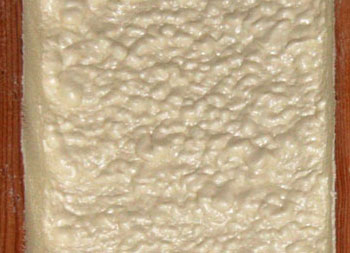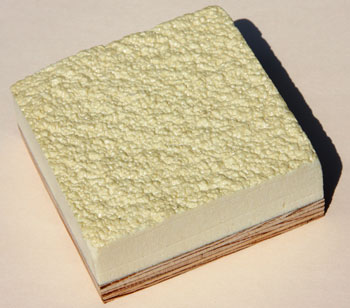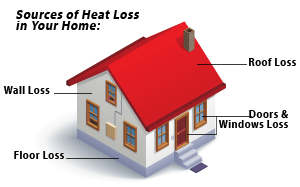Closed-Cell vs. Open-Cell Foam Insulation for Quebec
What is the Difference between Open-cell and Closed-cell Polyurethane Foams?
This may be one of the most important pages on the website if your interest is in spray foam insulation. When it comes time to actually put the foam product in your home or commercial building structure, you must identify whether you will use .05 lb./cu. ft., open cell foam, or 2.0 lb./cu. ft. closed cell foam. This makes a big difference in cost, application methods, and performance.
 With the open-cell vs. closed-cell issue, there are two major factors to understand and consider. The first is the nature of the foam. It is either open-cell foam, where the tiny cells of the foam are not completely closed. They are broken and air fills all of the “open” space inside the material. This makes the foam weaker or softer feeling than closed-cell foam.
With the open-cell vs. closed-cell issue, there are two major factors to understand and consider. The first is the nature of the foam. It is either open-cell foam, where the tiny cells of the foam are not completely closed. They are broken and air fills all of the “open” space inside the material. This makes the foam weaker or softer feeling than closed-cell foam.
Closed-cell foam differs in that all of its tiny foam cells are closed and packed together. They are filled with a gas that helps the foam rise and expand and become a greater insulator. These cells can be formulated to obtain many characteristics, the most common being size and density.
Density is measured by weighing one solid cubic foot of foam material. Open cell foams typically weigh in at 0.4 to 0.5 lb./cu. ft. Closed cell foam for insulation applications range in density from 1.7 lb./cu. ft. to 2.0 lb./cu. ft. Roofing applications typically use a 2.8 to 3.0+ lb./cu. ft. to support traffic and loads better. The higher the density the foam, the heavier, or stronger it becomes. Some polyurethane foams are molded into decorative interior molding and painted or stained for a simulated wood effect. These “higher density” foams are typically in the 30 lb./cu. ft. to 40 lb./cu. ft. density range.
 The advantages of closed-cell foam compared to open-cell foam include its strength, higher R-value, and its greater resistance to the leakage of air or water vapor. The disadvantage of the closed-cell foam is that it is denser, requires more material, and therefore, is more expensive. Even though it has a better R-value, typically the cost per R is still higher than open-cell foam. The choice of foam can also be based on the requirements for the other performance or application specific characteristics such as strength, vapor control, available space, etc. Open-cell SPF has an R-value around 3.5 per inch and typically uses water as the blowing agent. Closed-cell SPF has an R-value of around 6.0 per inch (aged R-value) and uses high R-value blowing agents.
The advantages of closed-cell foam compared to open-cell foam include its strength, higher R-value, and its greater resistance to the leakage of air or water vapor. The disadvantage of the closed-cell foam is that it is denser, requires more material, and therefore, is more expensive. Even though it has a better R-value, typically the cost per R is still higher than open-cell foam. The choice of foam can also be based on the requirements for the other performance or application specific characteristics such as strength, vapor control, available space, etc. Open-cell SPF has an R-value around 3.5 per inch and typically uses water as the blowing agent. Closed-cell SPF has an R-value of around 6.0 per inch (aged R-value) and uses high R-value blowing agents.
Both types of foam are commonly used in most building applications and the choice for which to use can depend on many of the factors discussed above. Some foams are inappropriate in specific applications. For example, you typically would not use open-cell foam below grade or in flotation applications where it could absorb water; this would negate its thermal performance because water is a poor insulator compared to air. Closed-cell foam would be a good choice where small framing sizes need the greatest R-value per inch possible. Closed-cell foam would be used for roofing applications.
Always contact your material supplier for performance and application data on their specific materials. What type of foam being used in your building or home is always a good issue to discuss with your spray foam installation professional up front, before the job starts.


